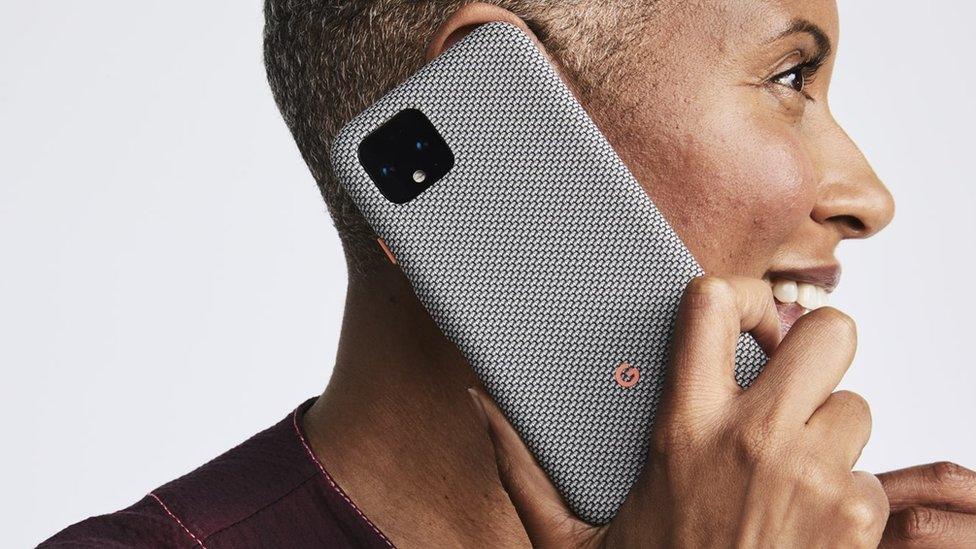Google Pixel 4: Indians disappointed as 'radar feature' prevents launch
- Published

The Pixel 4 handsets are Google's first to feature two cameras on the back
Indians were left disappointed after Google decided not to launch its Pixel 4 smartphone in the country on Tuesday.
Google only said that it determined availability on a variety of factors and had decided not to launch in India.
However, tech analysts speculated the issue was with its Motion Sense feature, which uses a radar frequency not allowed in India.
India is one of the world's fastest-growing smartphone markets, and is dominated by Google's Android OS.
The motion-sensing Soli radar chip allows the Pixel 4 to recognise gesture-based controls, allowing owners to change songs or swipe screens without touching the handset.
It is also used to give the device a 180-degree sense of motion in its immediate environment, allowing it to perform a variety of functions including turning on the screen and other circuitry only when it detects someone nearby, thus extending the time the phone lasts between charges.
"This is decidedly interesting stuff to explore, but it's the piece that won't work in India probably because companies aren't allowed to use radar-like equipment. The radar chip that is used on the Pixel 4 phones is very small, but it may still be something that isn't permitted. Or so we are guessing," tech journalist Mala Bhargava told the BBC.
And the disappointment is palpable.
"What's surprising here is that Google did not think of an alternative considering the limited feasibility of Project Soli... Google hardly seems to have made much effort to launch the phone without Soli or by disabling it in countries where it's frequency band is not available," the Times of India newspaper said, external.
"Google failing to realize that a marquee feature like Soli won't work everywhere once again shows just how incompetent the company is at hardware," railed another website, external.
"Google's Pixel phones are eagerly anticipated because they have a few things techies really love. First there's the pure Android experience with the very newest features and subsequent timely updates. Second, there's the thrill of owning a smartphone that's at the cutting edge of software. And third and most important is the game-changing camera," Ms Bhargava said.
The Pixel 4 camera has been pitched by Google as being able to take the kind of astrophotography images that required specialist camera kit in the past.
- Published15 October 2019
